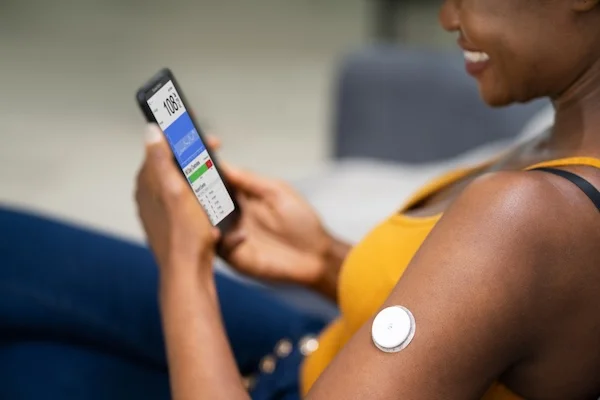 We at Biohackr Health are trying to help you make changes now to avoid issues in the future. Blood sugar is a key ingredient in that mix. How does your body respond when you eat? How high does your blood sugar go? We are finding out with the advent of continuous glucose monitors (CGMs) that people who are not known to be diabetic or prediabetic are having blood sugar spikes. The great thing? There are changes you can easily make- eating different portion sizes, adding protein or fats, walking after meals, taking our probiotic which has bacterial strains known to help with glucose control- to make your blood sugar better.
We at Biohackr Health are trying to help you make changes now to avoid issues in the future. Blood sugar is a key ingredient in that mix. How does your body respond when you eat? How high does your blood sugar go? We are finding out with the advent of continuous glucose monitors (CGMs) that people who are not known to be diabetic or prediabetic are having blood sugar spikes. The great thing? There are changes you can easily make- eating different portion sizes, adding protein or fats, walking after meals, taking our probiotic which has bacterial strains known to help with glucose control- to make your blood sugar better.
What do the studies show?
- Linear relationship between blood glucose levels and coronary artery stenosis seen by angiography. This supports the concept that your blood glucose level after eating are an INDEPENDENT risk factor for heart disease, even more important that fasting glucose levels.
- 20 year follow up showed those with highest 2 hour post eating blood glucose level had a mortality risk of 2.7 times those with the lowest quintile.
- Link with high glucose after eating and heart failure
- Link with high glucose after eating and increased atherosclerotic cardiovascular disease risk score
- Glucose levels between 180-270 showed endothelial (the lining of your arteries) dysfunction and oxidative stress even in non diabetics.
- Varying blood sugar levels had more deleterious effects than constant high glucose.
- Oxidative stress due to high blood sugar after eating is proportional to the magnitude of glucose spike. This triggers inflammation, endothelial cell dysfunction, hypercoagulability (clotting), and a cascade of atherosclerotic changes.
- Afib rates are 10% higher risk in those with high blood sugar
How can Biohackr Health help?
- TEST your insulin panel, HBA1c
- MONITOR using a continuous glucose monitor to see what YOUR pattern is
- PROBIOTIC Biohackr Health probiotic has strains which help with glucose control.
- EXERCISE doing a 5 minute walk after eating lowers the glucose spike
- LOWER YOUR WEIGHT BMI is a risk factor for glucose issues
- METFORMIN a cheap, effective medication used for over 60 years to help with insulin resistance
- SEMAGLUTIDE TIRZEPATIDE GLP1 agonists are shown over and over to not only help with weight loss, but lower risks of diabetes, inflammation, dementia, heart disease and more. If your BMI is over 30, for sure look at our monitored program for weight loss. We have helped hundreds and hundreds of patients.
